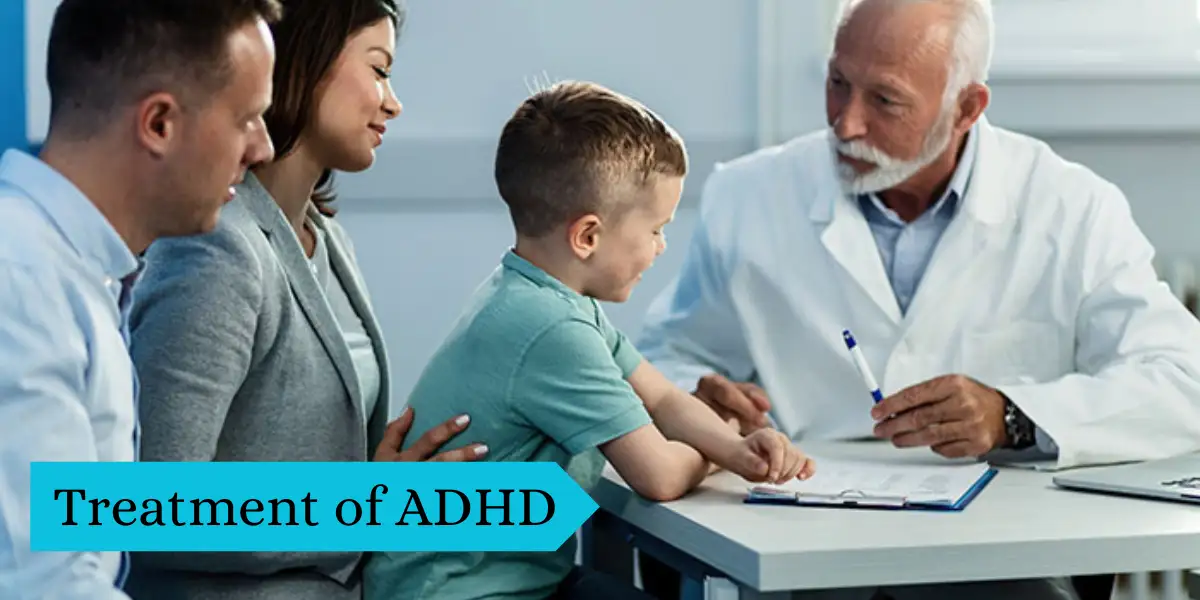One of the common neurodevelopmental disorders that affects children and develops through adulthood is the hyperactive disorder or rather attention deficit hyperactivity disorder (ADD). This huge shadow spreads over people’s daily lives affecting their schoolwork career prospects and social interactions. In this article, an attempt is made to explore different aspects surrounding hyperactivity disorder.
How Do I Know If My Baby Is Hyperactive? Symptoms Of Attention Deficit Hyperactivity Disorder (ADHD)
ADHD has been viewed as a disorder that incorporates elements of inactivity, hyperactivity and impulsivity. The expression may differ on a person-to-person basis but overall it defines a strong persistent pattern differentiating it from usual behaviour.

Attention problems constitute a core feature of ADHDan ongoing challenge in paying attention to work and play activities. Some individuals with ADHD will have a constant tendency to make many slips of attention when they are in academics or at work. Forgetfulness becomes a constant as they go around doing this or that making the hard job even harder.
The other pillar known as hyperactivity refers to unceasing restlessness. There is a potential that someone who suffers from ADHD will not be able to be seated when it is expected in society. their boundless energy is expressed through excessing and fidgeting and therefore makes sitting quietly and doing nothing an impossible matter.
The last dimension impulsivity which makes it even more unpredictable. Impulsiveness is characterised by a lack of consideration for the implications of one’s actions in individuals with hyperactive disorder. They act without a second thought, constantly disturb other people when talking and have no tolerance for waiting for their turn.
Is Hyperactive Child Normal? What Is The Main Cause Of Hyperactivity Disorder?
The aetiology of ADHD is complicated and comprises multiple aspects that involve genetic background surrounding factors and the nervous system. The genetic factor emerges as one of the major contributors to ADHD having a stronger probability of occurrence in cases where there are transmitters in the family line. The reason why shared familial background seems to play a role in the heredity of ADHD is not yet known but it is an active area of research.
Other environmental factors associated with pregnant mothers may also be instigators of ADHD. Studies that are aimed at investigating the developmental origins of hyperactivity disorder have identified maternal smoking, alcohol consumption and exposure to toxins as contributing factors. External influences interplaying with genetic vulnerabilities can lead to the emergence of ADHD symptoms.
It is necessary to explain the neurodevelopmental basis of ADHD using neurobiological factors. These differences in brain development are critical to understanding ADHD. Imbalanced levels of these neurotransmitters which act as functions are believed to result in the typical signs of ADHD.
Diagnosing ADHD In Young Children
The diagnosis of ADHD needs a lot of attention which only a medical professional like a psychologist psychiatrist or paediatrician can do. This is a broader evaluation that entails looking into a person’s past illness behavioural characteristics and symptoms displayed. A complete picture of the diagnosis is provided through crucial insights from parents teachers and other carers.
One of the guiding frameworks that are used by clinicians is the Diagnostic and Statistical Manual of Mental Disorders (DSM). The DSM V emphasises symptoms that must be observed in social schools home and other environments to cause impairment.it is a long process of diagnosis as it usually requires several tests and observations to be precise.
Treatment Of Attention Deficit Hyperactivity Disorder In Children
Because managing cases of hyperactivity disorder involves several aspects it is usually complex and requires many efforts by managers. There are various types of treatments including behavioural intervention psychotherapeutic approaches and medication adapted for different people.

Behavioural therapy is crucial in terms of teaching people who suffer from ADHD how to manage their lives and cope with life difficulties. CBT is aimed at replacing maladaptive or unclear thinking with clear thoughts that are more productive and lead towards better adjustment and behaviour modification for improved self-regulation.
Another important element is parental training which equips parents with the skills to guide and assist their children through the difficult situations they may suffer.
Although medication will not cure ADHD completely it may constitute an essential foundation for managing symptoms. Commonly prescribed stimulants including methylphenidate and amphetamine-based drugs are an effective treatment for behaviour disturbances such as attention deficit disorder with some hyperactivity (ADHD) or ADHD.
There are also non-stimulant alternatives such as atomoxetine that can also be adopted by those whose bodies are not compatible with stimulant medicines.
The success of people with ADHD largely depends on educational support, especially within schools and colleges.IEPs and 5504 plans as well as special education tools help teachers individualise educational processes for children with ADHD. Such accommodations might include additional test time, special seats and the supply of assistive technologies.
Living With Attention Deficit Hyperactivity Disorder (ADHD)
ADHD is not a phase that will pass but is a long-term experience and a permanent company is required. The symptoms of ADHD change as people go through different periods in their lives posing new challenges at every stage.
Hence early intervention which forms the basis for better outcomes and a positive developmental course is of key importance. It is important to make early diagnoses based on which interventions or measures can be implemented to lessen potential ADHD effects that might hinder academic or work progression by enhancing one’s confidence and fortitude.
Conclusion
Finally, a complex one about hyperactivity disorder deserves a special and understanding attitude towards this state. the comprehension of symptoms’ intricacies the interplay between genetics and environment and embracing heterogeneous therapy options together will create a supportive ground for ADHD people to realise their potential and success.
Also Read:- Can A Child With Autism Spectrum Disorder Be Normal? How Is Autism Treated?
Frequently Asked Questions
Q1. What is hyperactivity disorder ADHD)?
It is an attention deficit hyperactivity disorder, a neurodevelopmental condition whereby certain symptoms are always persistent like inattentiveness hyperactivity and impulsivity. It influences people regardless of age touching several spheres of their lives such as educational, occupational and communal.
Q2. What are the symptoms of ADHD?
These involve difficulties associated with inattentiveness hyperactivity and impulsivity(ADHD core symptoms). Such inattention may involve having problems with sustained attention over some time and may include daydreaming while at work carelessness that leads to making errors and forgetfulness. Hyperactivity refers to a state of being restless and unable to sit for long; also impulse is a situation of making swift decisions and failing to wait for one’s turn.
Q3. What causes ADHD?
Although we are still unclear on what causes ADHS we know that it is a result of one or a combination of interrelated components such as genetics, environment and neurobiology. It has been demonstrated that genetic predisposition and exposure before birth to some kind of unfavourable environment play an important role and can give rise to the onset of ADHD.
Q4. How is ADHD diagnosed?
The detection of ADHD is often done through medical examinations. The person’s medical history behaviours and list of symptoms should be thoroughly analysed here. However, information from parents, teachers and caretakers contributes greatly to an overall perception.
References
- Attention-deficit/hyperactivity disorder. National Institute of Mental Health. https://www.nimh.nih.gov/health/topics/attention-deficit-hyperactivity-disorder-adhd/index.shtml. Accessed Jan 26, 2019.
- My child has been diagnosed with ADHD ― Now what? Centers for Disease Control and Prevention. https://www.cdc.gov/ncbddd/adhd/treatment.html. Accessed Jan. 26, 2019.
- Sprich SE, et al. (2016). A randomized controlled trial of cognitive behavioral therapy for ADHD in medication-treated adolescents.
https://www.ncbi.nlm.nih.gov/pmc/articles/PMC5026858/